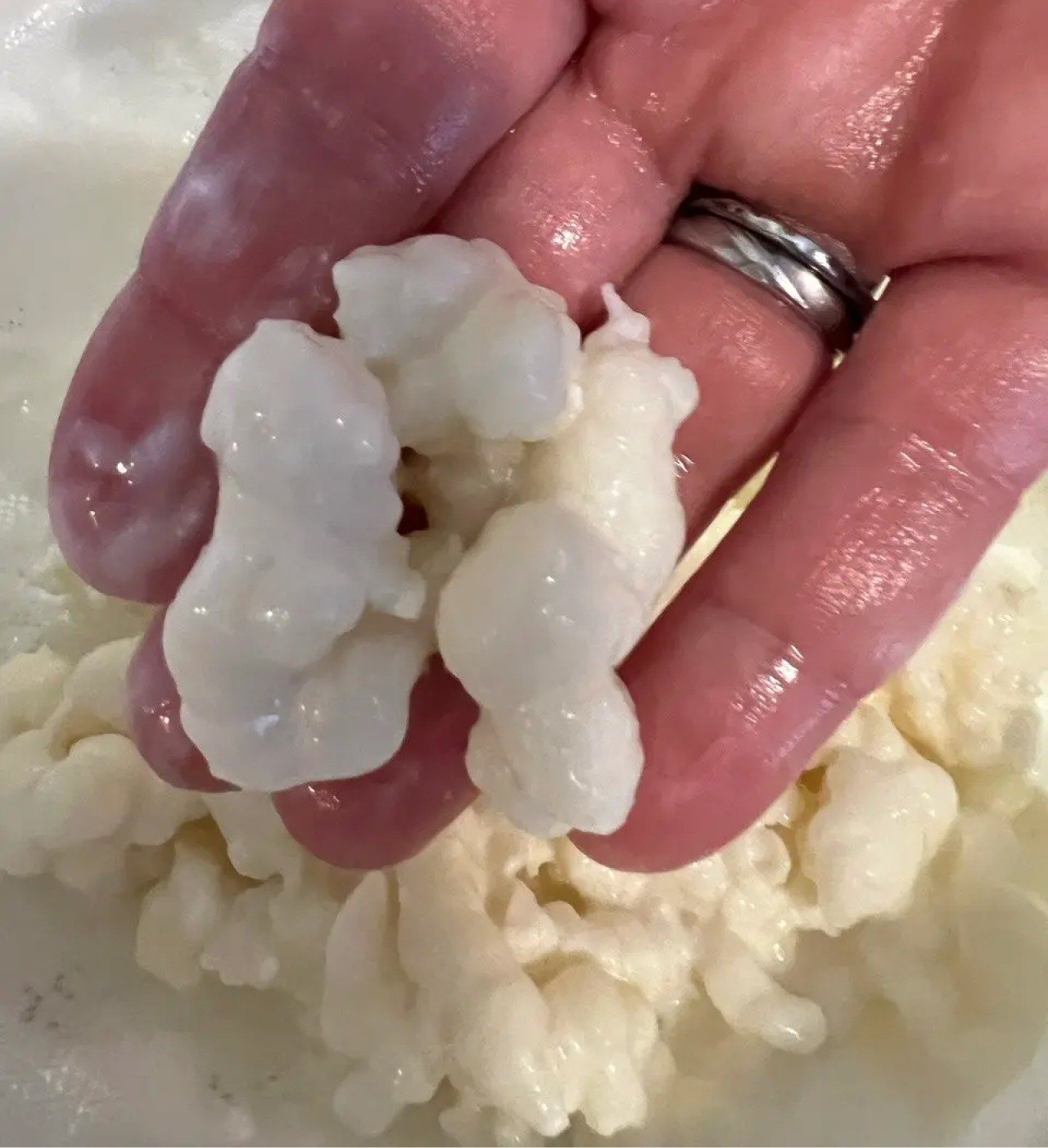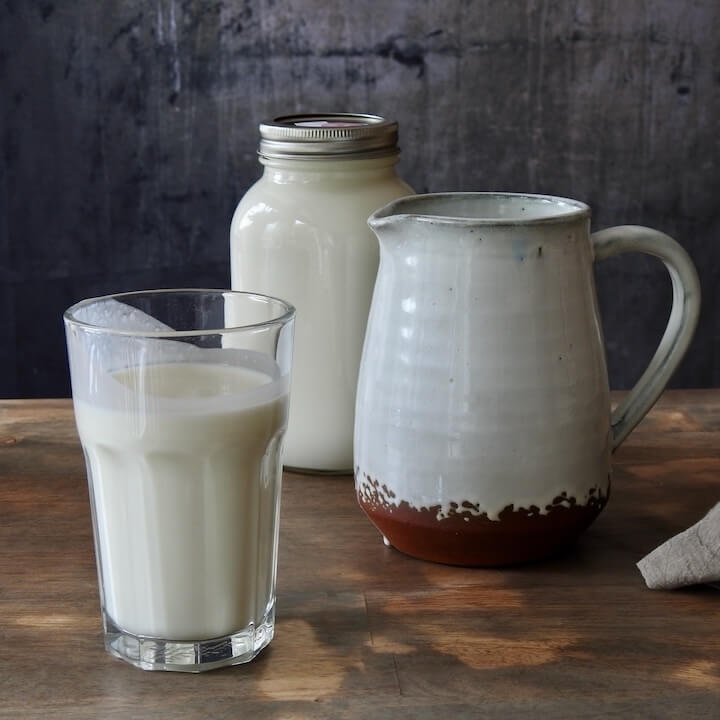
What is Kefir?
Kefir Is a cultured DAIRY drink.
The word “cultured” when it comes to food and biology refers to the growth of life, specifically bacteria, in a controlled space, such as a jar of milk. Kefir is created by placing small, white, squishy, bumpy bacteria starters called Kefir grains. And then allows milk to ferment over 24 to 48 hours. The word “fermentation” refers to the chemical activity of breaking down bacteria, yeast, and other microorganisms that usually create heat and air effervescences.
Kefir grains are responsible for inoculating the milk with billions of healthy, thriving bacteria that help our guts.
Once the Kefir Grains have Fermented the milk, the grains are strained from the leftover liquid, and a fresh batch of Kefir is ready!
Kefir can be made from different milk types like a cow, goat, sheep, and other milk.
When you place Kefir Grains in fresh milk, the bacteria and yeast break down the sugar or lactose.
The proteins and fats in the milk maintain their integrity, which means Kefir is fermented, not rotten.
That’s a key difference!
Similar to how grapes are safely turned into wine, milk is turned into Kefir!!!
The milk is not spoiled or curdled, and it is a far cry from milk that has been left at the back of your fridge for too long. Kefir brings life to your milk by filling it with healthy, good bacteria!!!

Nutritional facts
Fact #1
The nutritional qualities of milk are enhanced during the fermentation process.
That means Kefir contains more nutrients than the milk it’s made with. For example, Kefir has more calcium than milk! When Kefir grains inoculate the milk, the bioactive products enhance these nutrients to make them more available to the body. It is also true for B vitamins, which are fundamental players in our body’s function.
Fact #2
Kefir has significantly lower amounts of cholesterol than the milk it’s made with. Yep!
The breakdown of cholesterol happens due to the bioactive acids produced by the Kefir grains, meaning your body will not have to tackle the cholesterol itself.
Kefir lowers the cholesterol naturally present in the milk. Kefir grains have this powerful effect through the fermentation process. Some studies performed on Kefir show that fermentation can reduce cholesterol levels between 41%-84%. So, if a regular cup of milk contains around 20 mg of cholesterol, the kefir/fermentation process could reduce that amount to somewhere approximately 5-10mg of cholesterol. Pretty impressive, right?
Fact #3
Kefir has fewer calories than the milk it’s made with. The bacteria from the Kefir Grains “literally” eat some calories for you! And, because lactose (aka milk sugar) is consumed, this means your cup will have less sugar in it – meaning fewer calories. There will be a 20 % reduction in calories and Carbohydrates after the Kefir grains have done that work.
 A Functional Food
A Functional Food
What does kefir taste like?
Kefir has a creamy texture, tart taste, and slightly yeasty aroma. It is drinkable, but it is thicker than the milk it is made with. It can have a somewhat fizzy nature that creates a dynamic drink when made correctly.
From fruity to savory, from drinks to cheese making, Kefir is versatile. It is an excellent base for smoothies or a replacement for things like sour cream or yogurt when cooking or baking; it can be flavored in dozens of ways. Kefir can be one of the most uniquely delicious things to have in your everyday diet.
